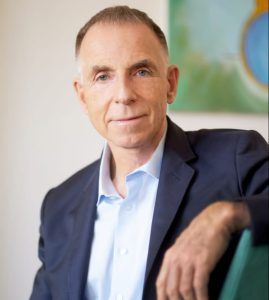
Mkpoikana Udoma
Port Harcourt — A German scholar and sociologist, Dr. Rainer Zitelmann, has said that capitalism was not responsible for global poverty, human inequality, monopoly and other negative vices in the world, saying that capitalism remains the solution to the world’s problems and not the cause.
Zitelmann who described capitalism as an entrepreneurial economic system, explained that socialism gives no room for entrepreneurship, adding that anti-capitalism was not grounded on reason or rationality but primarily a rejection based on emotions.
The German scholar speaking virtually at a public lecture series titled, ’10 Fallacies of Anti-capitalism and what People in Nigeria think of Capitalism’ at the University of Port Harcourt, said from his survey, Nigerians have a positive outlook on capitalism as they were of the opinion that capitalism was synonymous with economic freedom and prosperity.
He stated that capitalism is an economic system based on private ownership and competition, whereby companies themselves are free to determine what and how much they produce, aided in their decisions by prices set by the market, regretting that anti-capitalism has been made a political religion.
According to Zitelmann, the 10 fallacies of capitalism, include, “capitalism is responsible for poverty and hunger, leads to growing inequality, is responsible for environmental destruction and climate change, monopolies, economic and financial crisis, capitalism promotes selfishness and greed, leads to war, entices people to buy products they don’t need, and capitalism is dominated by the rich.”
Debunking the misconceptions about capitalism, the German sociologist said government should stay out of social and economic affairs more than it does today.
“This does not mean that government is superfluous or unimportant. But it does mean that today’s politicians, political parties and civil servants take themselves far too seriously. And
despite this, you don’t have to look very far to see that many Western governments are failing to fulfill many of their core responsibilities as demonstrated by their often-amateurish handling of the coronavirus pandemic.
“We see the same in many Western countries from decaying in frastructure, failing education systems, and from serious deficits in domestic and foreign security. The state is often weak precisely where it should be strong – and far too strong where it should be weak, that is, in the economy. Politicians spend much of their time coming up with new ideas for redistribution and state regulation, ignoring the solutions to many of the most urgent problems – such as a rational and efficient immigration policy.
“Let us therefore dare to have less government and more capitalism! Not in the sense of a sweeping revolution or sudden upheaval, but as Reagan and Thatcher began but did not continue by giving the
market much more freedom.
“For this alone, capitalism is superior to other systems. If capitalism really were to come to an end, it would not be because of internal contradictions and systemic weaknesses, but because anti-capitalists were more successful than the supporters of free markets on the ideological front.
“The people who keep capitalism alive – entrepreneurs, workers and employees – are fully occupied with being productive and creating value. They usually have little time to participate in sociopolitical debates. Unlike anti-capitalists who have far more time for such debates, they do not have to create value because their salaries are mostly funded by the taxpayer.”
For his part, the Vice Chancellor of the University of Port Harcourt, Prof. Georgewill Owunari, commended the German author for the lecture and for acknowledging the University, and urged the students to read widely especially books that will open up their minds, such as the 10 Fallacies of Anti-capitalism and what People in Nigeria think of Capitalism.
Speaking to newsmen, the African Representative of Liberty International African Project, Mr. Rowland Dappa, said the lecture was imperative in order to debunk the misconceptions surrounding capitalism, which according to him, capitalism is all about promotion of free market economy.
“Nigerians should understand that capitalism is not evil, capitalism is not cronyism. Cronyism gives rise to monopoly, while capitalism gives room for competition and that is why capitalism should be adopted in any economy,” Dappa said.
Follow us on twitter



